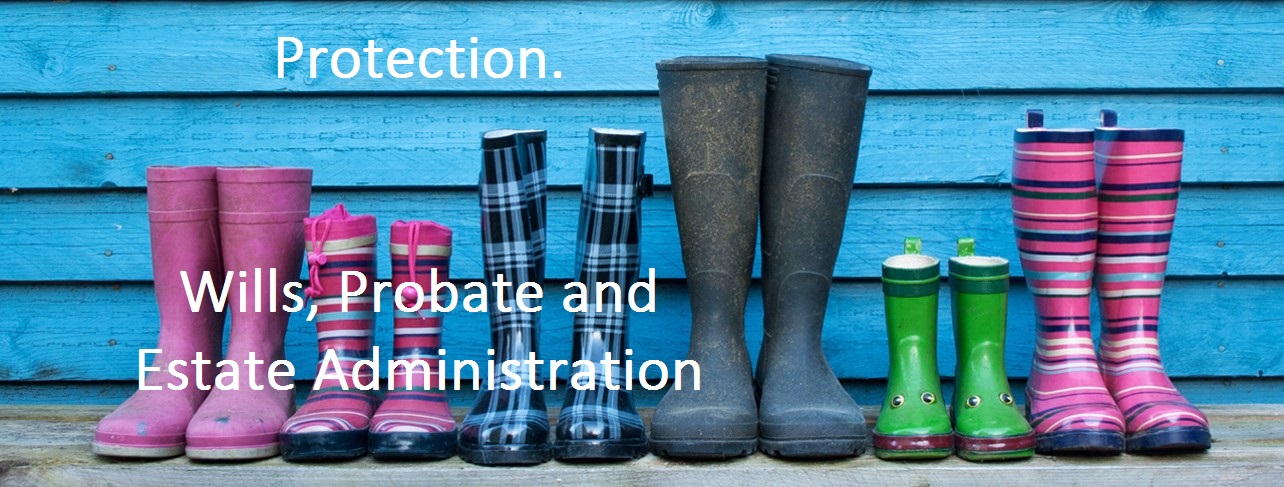Our team of experts explains the ins and outs of wills and probate
What is a will?
A Will is a legal document which expresses what you would like to happen to your possessions and assets (commonly know as your estate) on your death.
In addition to dealing with what you would like to happen to your estate, it will also enable you to appoint those people you want to look after your affairs after your death and ensure that the wishes as contain in your Will are carried out. These people are called executors.
Why do I need a will?
You need a Will to ensure that your estate passes to those that you want to receive it and in order to appoint those persons you trust to carry out your wishes.
At what age should I make a will?
You can make a Will from aged 18, but there is no optimum time to make a Will. Ideally you should make a Will as soon as you acquire assets, such as property.
Do I need to change my will if I marry or get divorced?
Once you get married your existing Will is automatically revoked, unless you have made express provision that any impending marriage will not revoke the Will. If such a provision is not included, you will have to make another Will.
If you divorce, your Will takes effect as if your former spouse had died before you, unless you express a contrary intention in the Will. You may therefore need to make a new Will to provide what you wish to happen to your estate.
What will happen if I die without a will?
If you die without leaving a Will, you are deemed to have died intestate.
This means that your estate will be distributed in accordance with statutory rules. These determine who inherits your estate, which may not be those that you intended.
In addition, the rules dictate who will act as the administrator (which is the same role as executor).
What should be included in a will? Is there anything specific that should be focused on?
You should appoint at least one executor. If any children are inheriting under the Will, you should appoint two executors.
If you have any children, you should think about appointing guardians to look after your children until they reach 18.
You should think about whether you wish to make any monetary gifts or gifts of specific items.
Subject to the above, you should then think about who should inherit the rest of your estate and also consider what should happen if those beneficiaries die before or with you, for example, in an accident.
What should I do if I need to challenge a will of someone who has died?
It can be very difficult to challenge a Will and the grounds include; that the person who made it was not of sound mind at the time, that they were subject to undue influence, or that the Will has not made ‘reasonable financial provision’ for a particular beneficiary. There are strict requirements to succeed with any such claim.
What is an executor of a will?
An executor is the person who is responsible for collating all relevant paperwork, arranging for assets to be valued and for those assets to be sold (if necessary), your debts to be paid (if any) and for the estate to be distributed in accordance with the terms of the Will.
How should I choose the executor of my will?
You should choose somebody you can trust to carry out your wishes and someone who you feel would be capable in that role.
What is probate?
Probate is an order of the court authorising a person or persons to deal with the estate and confirming the appointment of those people named in the Will as executors.
In the absence of a Will a Grant of Letters of Administration is issued.
Both documents are commonly known as grants of representation.
How long does it take?
The time frame for dealing with a person’s estate varies according to the size and number of assets.
Once we have submitted an application to the Probate Registry a grant is generally returned within 3 weeks.
Do I need to use a solicitor for probate?
You do not need to use a solicitor to make an application to the Probate Registry. You can do this yourself and there are specific forms for people who wish to apply themselves, but many people find this complicated and often turn to solicitors for assistance.
How do I know if I have to get probate?
If the deceased owned property in their sole name (or the survivor of jointly owned property), you will need to apply for a grant of representation if you wish to sell the property.
If the deceased had bank accounts or investments that exceed a certain value (which varies from institution to institution) you will need to obtain a grant of representation. It is wise to approach the bank/investment holder to ask their requirements.
Please contact us if you would like more information about the issues raised in this article or any aspect of wills and probate on 029 20 34 55 11 or wills@berrysmith.com

Chris Beames – Partner
